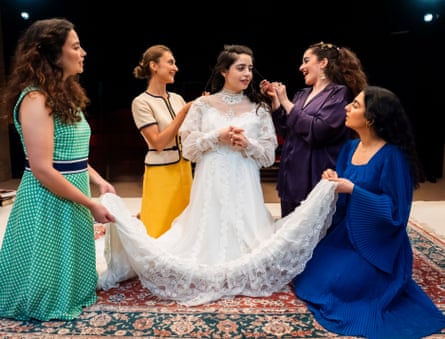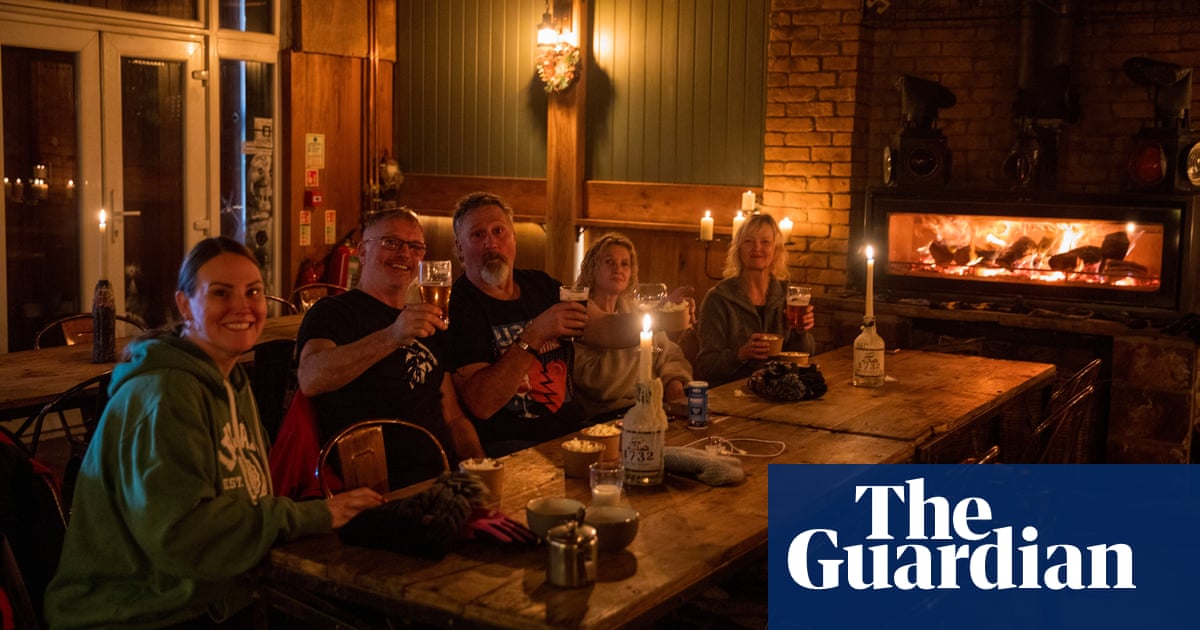Two dramas by Sanaz Toossi premiered in the US in 2022. English, about friends in an Iranian classroom, won the Pulitzer prize. But it is the other one, Wish You Were Here, that seems like the real love letter to friendship by the American Iranian playwright.
You do not see or feel the love for a while. Directed by Sepy Baghaei, the drama begins in 1979, with the Iranian Revolution as the backdrop, and plays out over the years of the Islamic Republic until 1991.
It opens with a chatty gaggle of female friends, convened in a living room around a nervous bride, Salme (Emily Renée). The others joke about the night to come and the loss of virginity, with bawdy jokes about penises and “pussies”, but they also play girlish games. Slowly we learn who they are, what they might want from life.
Shideh (Isabella Nefar) is the uptight, testy one with ambitions to become a doctor; Salme is devout from the off and close to Nazanin (Afsaneh Dehrouyeh), the prickliest of them. There is also Zari (Maryam Grace) and Rana (Juliette Motamed), the latter of whom is Jewish.

We see them getting married, having children, experiencing loss, leaving each other’s lives and sometimes coming back. They dwindle in number as some flee the new regime, or go abroad to study, while Rana disappears, with rumours she has safely escaped the Islamic Republic and is in Israel. Political changes exert themselves on these women’s lives but are never foregrounded. Sometimes the dialogue is frustratingly elliptical and you only catch its drift. These are slices of life, with the in-between unexplained.
Pouya Ehsaei’s exquisite sound design plays a big part in reflecting the passing of time, switching from Iranian pop music to radio broadcasts and air raid sirens, alongside Matt Haskins’s lighting, which goes from bridal brightness to candlelight during the Iraq/Iran war, and Tomás Palmer’s traverse set becomes a lovely intimate space.
Some of the actors’ speech seems halting, straining for silences that are over-egged and empty. But the performances warm up and all the while this play is building its subtle, often unspoken, emotional architecture. Played straight through and frustratingly slow at times, there is a great surging power to its end, with a big emotional payoff that is well worth the wait. These people are each other’s homes, and it is through them that they find belonging.
-
At the Gate theatre, London, until 23 November

.png) 2 months ago
18
2 months ago
18













































